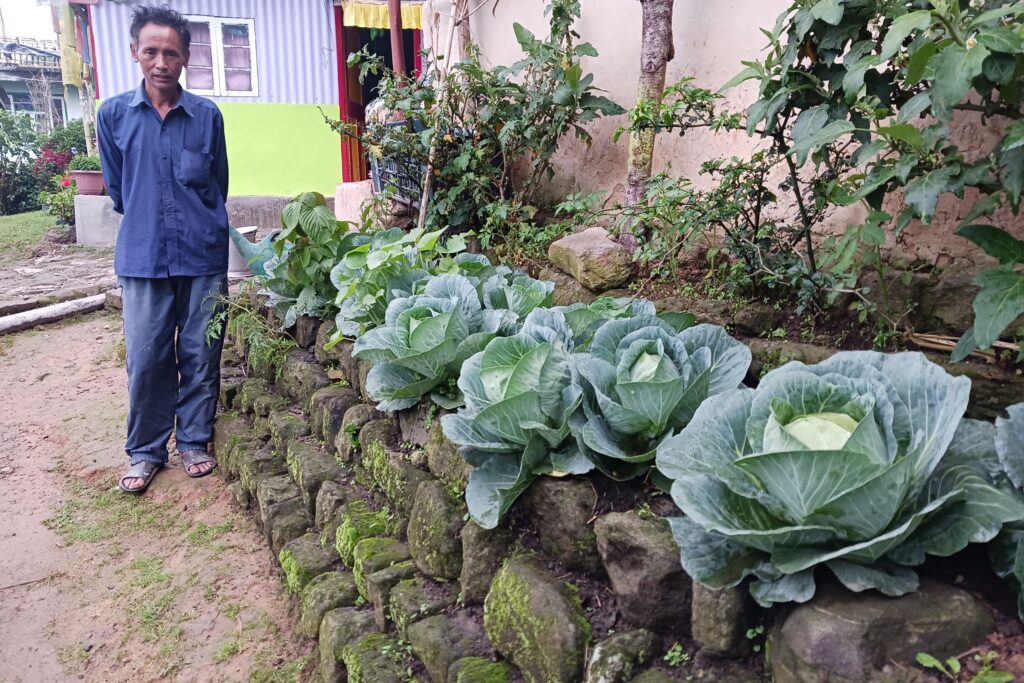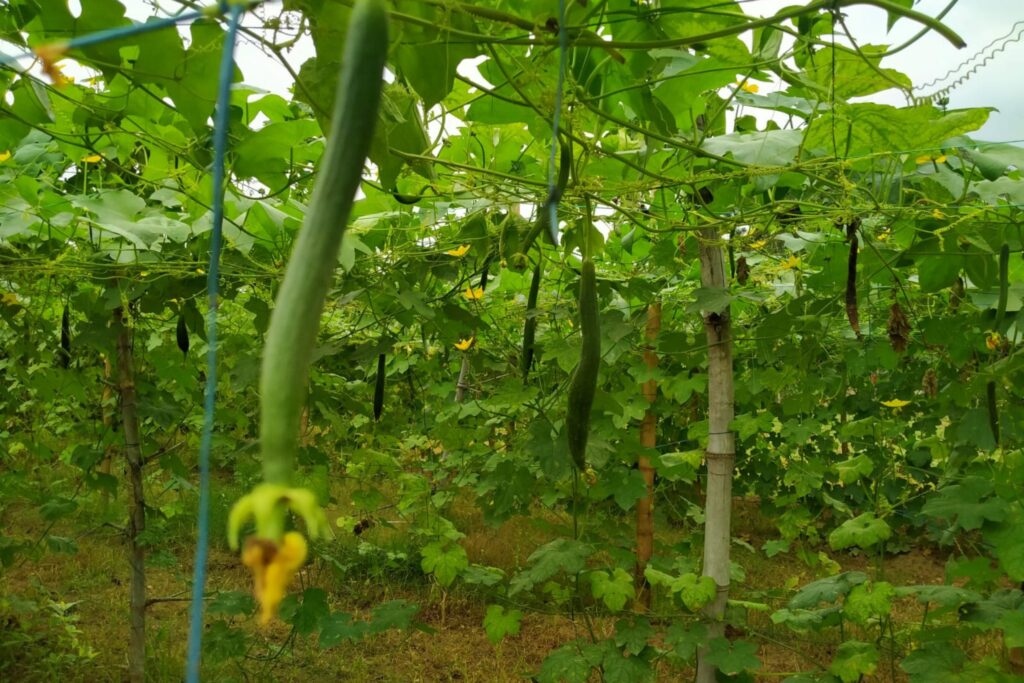Despite India’s attainment of self-sufficiency in food, nutritional deficiencies remain. In 2023, the NGO Welthungerhilfe published a report based on the Global Hunger Index that ranked India 111th out of 125 countries. Based on key indicators such as wasting, stunting and infant mortality, the report highlights malnutrition in the country.
The states of Bihar and Jharkhand, are ranked among the areas most affected by growth delays and anemia, with. women and children being the primary victims. Our teams have been working to combat malnutrition and its consequences in these states for many years, and in 2023 we expanded our programs into the Darjeeling district of West Bengal.

Karuna-Shechen’s kitchen gardening program provides the seeds and seedlings of seasonal vegetables to households in these rural regions three times a year.
A Balanced Diet for Every Season
In India, the seasonal weather plays a crucial role in crop availability. Vegetable gardens typically thrive during the monsoon season, but during the winter the soil retains a considerable amount of the water absorbed during the monsoon. Because cultivation requires adaptation, the seed and seedling kit Karuna distributes to designated beneficiaries varies by season.

Ensuring a constant food supply can be a major challenge for many families. Because these kits are specially designed to meet the needs of families during different seasons, they provide disadvantaged households with a complete diet while respecting local biodiversity.
The seeds and seedlings distributed include tomatoes, cabbage, cauliflower, eggplant, peas, carrots, beans, and peppers. Additionally, leafy vegetables like spinach or radish leaves are also provided to ensure a balanced diet.
Community feedback is very encouraging. Many beneficiaries attest to the freshness and flavor of winter vegetables grown in their own gardens and prefer eating fresh produce from their gardens compared to those available in local markets.
Rekha Devi, a resident of Pathulwa village in Bihar, is now part of our vegetable garden initiative: “This winter, I received spinach, beets, carrots, and other seasonal vegetables. They are of great quality and provide us with a good harvest. Just like in other seasons, this winter too, we earned a decent income by selling surplus vegetables in the local market.“
By providing essential resources and encouraging sustainable agricultural practices, seasonally adapted vegetable garden kits become a vital tool in combating malnutrition while promoting community development and resilience to climate challenges.
For healthy and sustainable agriculture in India
Returning to Basics to Overcome Water Scarcities
Water management is a persistent challenge for many agricultural communities in India, exacerbated by climate change and extreme weather conditions. Because adequate water is crucial for the success of Karuna’s food security and agricultural resilience programs we encourage and facilitate drip irrigation, a traditional but overlooked approach to farming.
Winter crops, known as Rabi crops, require adequate moisture to germinate and grow. By providing participants with a complete drip irrigation kit including a 500-liter water reservoir, we have been able to transform how soils are affected by winter drought. This initiative helps sustain the vegetable gardens of beneficiaries throughout the year. Likewise, the kit provides all the necessary tools to overcome climate challenges and thus empower the beneficiaries’ vegetable gardens.

Karuna-Shechen offers a sustainable and effective model for food security in regions affected by climate change. By increasing agricultural production throughout the year using proper tools and adapted methods, this program also enhances the farmers’ economic livelihood.
The Economic Evolution of the Program
Over the years, we have recognized the importance of a holistic perspective in the design and implementation of our initiatives. Rather than simply addressing the symptoms of problems, we have committed to addressing the root causes of the challenges our beneficiaries face. This comprehensive approach has allowed us to understand that sustainable development can only be achieved through a harmonious integration of economic, social, and environmental aspects.

The food security program as initially conceived by Karuna-Shechen has evolved into promoting inclusive economic development within the communities we serve.
The program began with the distribution of seeds and training in certain crops or fungus, which have significant nutritional qualities, with the aim of encouraging households to consume products from their vegetable gardens. But the success of these crops has allowed beneficiaries to sell and share their surplus, providing potentially sustainable income. Thus, in addition to mushrooms, Karuna-Shechen teams now provide training and support for cash crops, like strawberries and oranges.

The program thus promotes a 360-degree view of the impact of a healthy diet. Participants like Ramchandra Pandit from Neema are supported in learning and cultivating their vegetable gardens, which becomes a long-term, sustainable livelihood: “I have engaged in small-scale farming to support my family’s needs and for commercial distribution. During my work, I had the opportunity to meet Ramchandra Ravidas, a “compassion motivator”. He introduced me to the seed distribution program and explained the benefits of organic crops. The seeds provided were not only of high quality but also cost only a fraction of what I would have paid in the market. I received seasonal seeds and planted them following the advice of Karuna’s teams.“
As our program continues to evolve, we remain true to our holistic vision of community development. By uniting our efforts to promote sustainability, social inclusion, and economic progress, we are confident that we can catalyze positive and lasting change for future generations.
In the near future, Karuna plans to provide training focused on the economic aspect of agriculture and establish links with markets. This will provide program participants with the opportunity to compete with larger producers.
